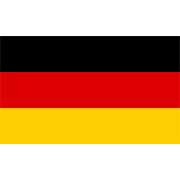Fiscal subject related
The Wirtschafts-Identifikationsnummer (W-IdNr) is a unique identifier assigned to businesses in Germany, designed to streamline interactions with financial authorities and other government agencies. This identifier plays a crucial role in simplifying administrative processes and enhancing efficiency in tax-related matters.
For businesses, the W-IdNr brings several benefits:
- Unique Identification: It uniquely identifies your company to tax authorities and other government agencies.
- Simplified Communication: It facilitates communication with authorities, making interactions smoother and more efficient.
- Future Automation: It holds the potential to simplify and automate tax processes in the future, reducing administrative burdens.
The W-IdNr does not replace existing identification numbers such as the Umsatzsteuer-Identifikationsnummer (USt-IdNr). Instead, it is used alongside these numbers to enhance the overall efficiency of administrative processes. While the USt-IdNr is specifically used for intra-community trade within the European Union, the W-IdNr is applicable to all businesses in Germany for tax purposes. Although the introduction of the W-IdNr adds another number, it is intended to simplify administration in the long term. By uniquely identifying companies, the W-IdNr aims to gradually replace existing identification numbers, thereby avoiding duplication and making processes more efficient.
One of the key advantages of the W-IdNr is that it is automatically assigned by the Federal Central Tax Office. This applies to both new and existing companies:
- New Companies: The W-IdNr is assigned during the tax registration process.
- Existing Companies: The W-IdNr will be allocated automatically from November 2024 to 2026. No separate application is required.
The W-IdNr is essential for communication with tax authorities and will also be used as a nationwide business number (beWiNr) in accordance with the Basic Business Data Register Act. This simplifies administrative processes and ensures the clear identification of your company.
Other news from Germany
Germany: Court Confirms Tax Authorities Can Request Tax-Relevant Emails During Audits
 Germany
Author: Ivana Picajkić
Germany
Author: Ivana Picajkić
German tax authorities are increasingly requesting tax-relevant emails during audits, and a 2025 Federal Fiscal Court ruling confirmed that such emails must be retained and disclosed when they contain relevant commercial or tax information. Read more
Subscribe to get access to the latest news, documents, webinars and educations.
Already subscriber? Login


Germany and France Update their Common E-Invoicing Standard
Germany and France will jointly update their hybrid e-invoice formats ZUGFeRD and Factur-X on 15 January 2026 to align with EN 16931 and support their upcoming B2B e-invoicing mandates. The new version expands technical capabilities, improves interoperability, and ensures full compatibility between both formats as Europe prepares for unified digital reporting under ViDA Germany and France have ann... Read more



Germany Lowers VAT on Food in Restaurants to 7% from 2026
 Germany
Author: Ivana Picajkić
Germany
Author: Ivana Picajkić
The German government has approved the Tax Amendment Act 2025. Starting January 1, 2026, the VAT rate for all food served in restaurants will be reduced to 7%. This change will support restaurants, cafés, bakeries, butchers, and catering businesses What changes on January 1, 2026? Food eaten on-site in restaurants will drop from 19% to 7% VAT. This creates a uniform 7% VAT rate for: din... Read more



German 2025-2028 TSE Replacement: Steps for POS Providers and Retailers
 Germany
Author: Ivana Picajkić
Germany
Author: Ivana Picajkić
Germany’s TSE replacement will unfold in multi-year waves from 2025 to 2028, because each hardware TSE expires five years after activation rather than on a single nationwide date. This long replacement cycle forces manufacturers, integrators, and retailers to plan strategically—balancing hardware swaps, cloud-TSE migrations, and clear communication to manage staggered deadlines and complex install... Read more



New document was uploaded: S4FiscalBackoffice Patch
S4F backoffice patch is intended for users who have already installed S4F backoffice and are intended to update existing installations to latest version. To do so apply only patches that are marked with version number that is newer than your currently installed instance of backoffice. Please make sure to install all available patches sequentially (without skipping). This package contains instruction, release notes, changelog and software packages required for deployment of this software component. Read more
Subscribe to get access to the latest news, documents, webinars and educations.
Already subscriber? Login


New document was uploaded: S4FiscalBackoffice Patch
S4F backoffice patch is intended for users who have already installed S4F backoffice and are intended to update existing installations to latest version. To do so apply only patches that are marked with version number that is newer than your currently installed instance of backoffice. Please make sure to install all available patches sequentially (without skipping). This package contains instruction, release notes, changelog and software packages required for deployment of this software component. Read more
Subscribe to get access to the latest news, documents, webinars and educations.
Already subscriber? Login


Germany: 2025 Reporting Rules for Electronic Recording Systems
 Germany
Author: Ivana Picajkić
Germany
Author: Ivana Picajkić
Starting in 2025, companies must electronically report all electronic recording systems at each business location to the tax office. Required data includes company details, system types, software versions, serial numbers, and acquisition dates, with automation options to minimize errors. An internal checklist ensures compliance and proper documentation. From 2025, all companies must report their e... Read more


